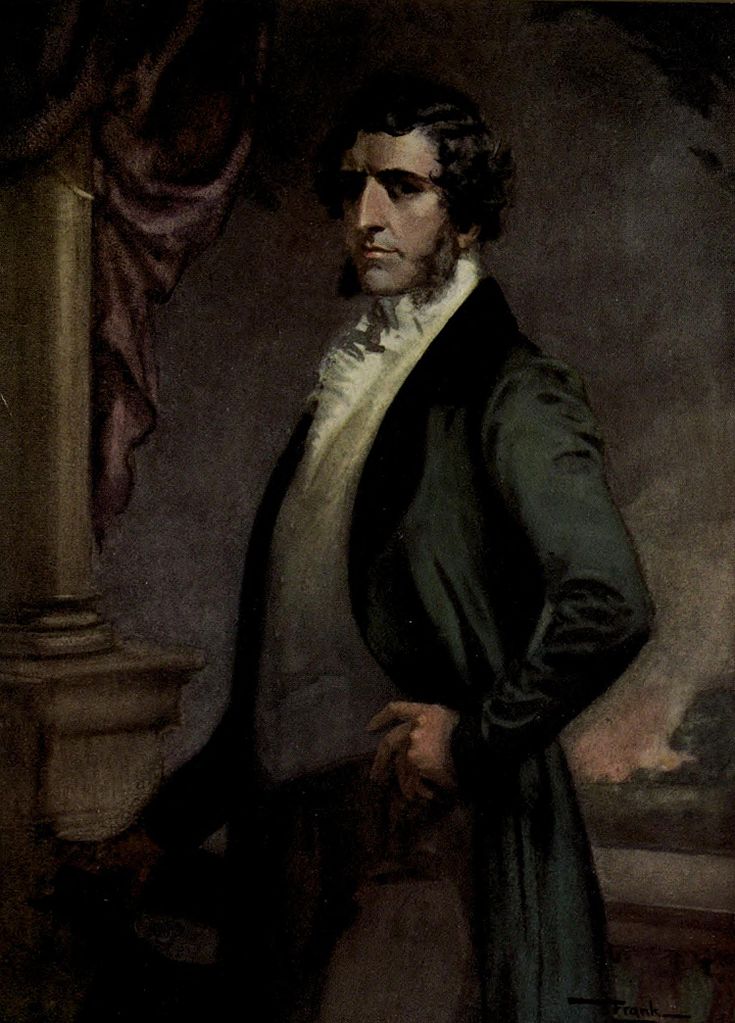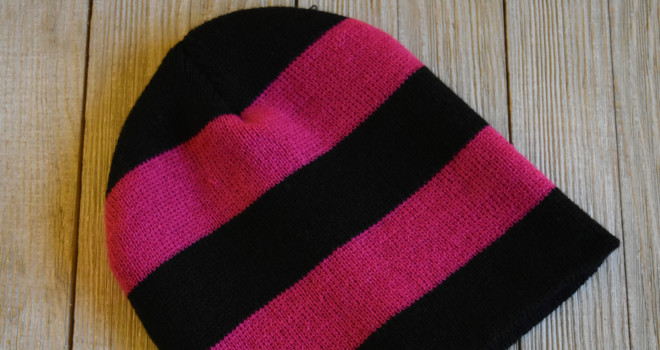Churches attract a lot of weird people. I first became aware of this in sixth grade at my parochial school. Whenever we marched into the church for choir practice, adoration, or Mass, we saw a woman sitting in the back pew. She always held a magenta knitted hat, but I don’t remember her ever wearing it. I never wondered why she was always in the church. To my young eyes, the gray hair was enough evidence that she had nothing better to do. She was always happy to see us and liked to ask what we were learning. She said she was praying for her daughter. When she wasn’t chatting with us, she would hum a melody quietly enough to be unobtrusive, but loud enough to be heard. I liked her.
One day, before an all-school Mass, we heard someone screaming behind us. Though the words were sharply enunciated, the voice was so harsh that I couldn’t make them out. I heard paternal attempts at pacification, then I saw the woman with the magenta hat make some kind of gesture towards our priest, then storm out of the building. Father turned, signaled the pianist, and processed down the aisle. There was spittle on his chasuble. If Father betrayed his own anxiety during the Mass, I never noticed it. The only sign of his thoughts was that he smiled less than his wont. That day, our teachers taught us the definition of “bipolar”. Or, rather, our small encounter had taught us what it meant. Our teachers merely taught us the word.
An adult would have recognized the woman’s illness months or years before I did. On account of my ignorance, I made two faulty judgments. The first was that she was just a nice lady whose daughter needed a lot of prayers. The second was that she was a spiteful, evil person. Such juvenile naivete is blameless, if not harmless, and a child’s simple acceptance of things at face value can be charming. But it also makes children vulnerable.
Ignorance is not always blameless. As we grow in experience, we ought to recognize the Austenian precept that some people have all the goodness, and others all the appearance of it. The truth rarely corresponds neatly with our unexamined intuitions, and we each have a moral obligation, if not actually to discover the truth when we are deceived, at least to recognize that our veil of ignorance makes judgments much less certain. This is especially true for moral judgments, wherein, as Aristotle said, it is a sign of a lack of education to posit more certainty than one ought.
This is not to say that one moral judgment is as good as another, or that we can have no certainty at all; neither Aristotle nor Austen was a relativist or a skeptic. But we ought to give others the benefit of the doubt, because there is more about those people that we don’t know than that we do. Where Elizabeth Bennet may have been more astute than her sister, her celerity in judgment meant that she overshot the conclusions the evidence warranted. Jane, whose apparent naïveté was really a recognition that she didn’t know all the relevant circumstances, judged Darcy’s character much more correctly.
In order to reduce the opacity of this veil obstructing our moral vision, it is necessary to identify the threads with which it is woven. The most important one is our ignorance of others’ personal history, including their upbringing and their more recent actions of which we are unaware. The truth is that this component of the veil is so solidly secured about our eyes that it cannot be removed until the Day of Judgment. That we cannot know a person’s secret deeds, whether moral or intellectual, is the reason we can never know the state of another’s soul. The reader will not be surprised to read that it is in this way we ought not judge others.
There is another thread whose opacity can and ought to be reduced, insofar as we are able. This thread is our ignorance of ourselves.

One of the greatest dangers in life is to mistake one’s own vice for virtue. Think, for example, of Edward Murdstone of David Copperfield. His austere pursuit of rational living was really a pursuit of his own will; in trying to live according to Kant’s categorical imperative, he mistakenly lived as Nietzsche’s übermensch. Due to his self-ignorance and his pride, he became a horror to himself and to those around him. It was shocking when he caned David for performing poorly in his studies; but the prospect of unwittingly becoming another Murdstone is much more terrifying.
The surest safeguard against becoming a Murdstone is a consistent prayer life that is fed with proven spiritual reading. If, fortified by having read Story of a Soul, for example, one sits down for twenty or thirty minutes of mental prayer, one simply cannot help but grow in self-knowledge. St. John of the Cross tells us that without grace, one’s soul is like the air in a semi-lit room. It looks clean enough. But grace gained in prayer is the sunlight that shines through a window and reveals the thousands of dust particles of which we had been blissfully ignorant. As the light coming through the window strengthens, we begin to realize how much that dust has really affected our vision. And as we filter out our vices, we find that we’ve been mistaken about many things we felt certain about in the past.
In coming to know ourselves, we also come to know others. We share the same human nature, after all. We will certainly be more solicitous about the good of our neighbor, whose personal struggles we now recognize to be ours, too. Knowledge of our faults also humbles us, and, as we come to know how broken we ourselves really are, we see others’ virtues more clearly for what they are. We’ll find little things to admire in everyone. It is difficult to despise or disregard someone whom one admires, and it becomes easier to love them.
Our ability to see through this veil of ignorance bears great weight with regard to our happiness, both temporal and eternal, for the apostles teach us that our love of God is only evident insofar as we love our neighbor. Further, it is easy to profess love of neighbor without actually loving anyone. We can fool ourselves that we love humanity through our political views or through our work, while we are also unwilling to suffer the company of a chatter-box or a boor for half an hour. But it is rather through those personal encounters than through the voting booth that we know whether we love our fellow man, and thereby whether we love God.
And so, we are confronted with the fact that to turn our love outward, we must turn our gaze inward. The person who is the least self-aware is also the person who loves himself the most, to the detriment of those around him. We see this play out every day on Twitter feeds and in comboxes. And though Big Tech’s crack-down on conservative voices has changed our country for the worse, perhaps this jilt will change us individually for the better. It is time for us all to realize that our screens distract us from the introspection necessary for a healthy extrospection. Rather than seeking God in the wind, earthquake, or fire of an overabundance of political zeal, let us seek him in the gentle breeze that we encounter in our everyday, real life.
Every once in a while, I think of the lady with the magenta knitted hat. I remember the crooked smile she made as she closed her eyes and hummed. I remember the way she clutched her hat with both hands. Then I remember feeling my chest tighten and my heartbeat quicken when I heard the venom spewing towards my pastor at the back of the church. I never saw that woman again, but I still pray for her, and for her daughter. I’m also thankful for that early lesson that things aren’t always the way they seem.
✠













